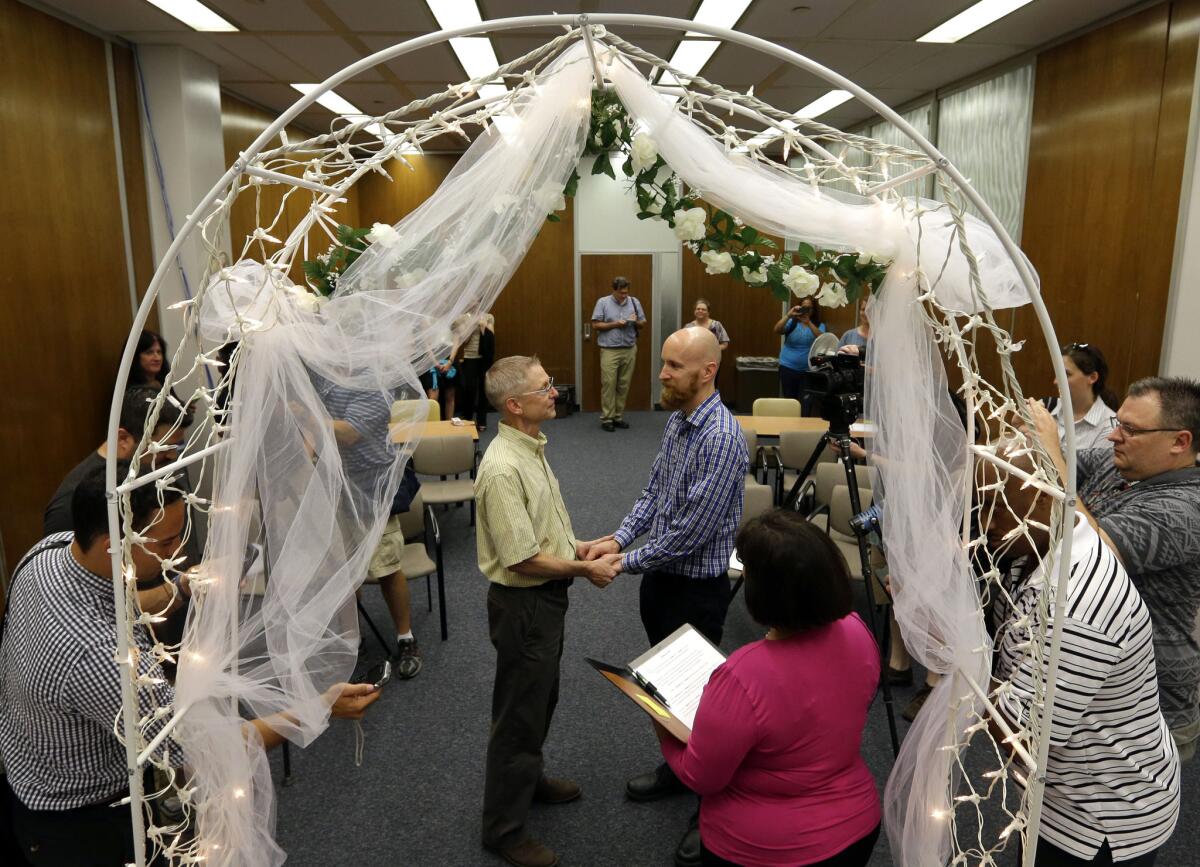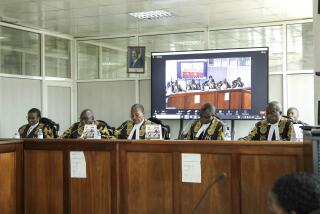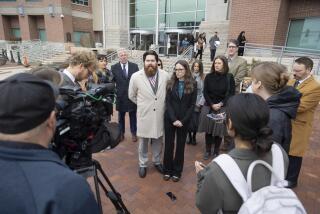Wisconsin to appeal court decision striking down gay marriage bans

A federal appeals court ruled Thursday that same-sex marriage bans in Wisconsin and Indiana are unconstitutional, setting up yet another legal showdown that could ultimately be decided by the Supreme Court.
In a 40-page unanimous decision, the three-judge panel of the U.S. 7th Circuit Court of Appeals in Chicago affirmed two lower courts’ decisions.
“Indiana and Wisconsin have given us no reason to think they have a ‘reasonable basis’ for forbidding same-sex marriage,” the ruling says. “The discrimination against same-sex couples is irrational, and therefore unconstitutional.”
Attorneys representing gay couples rejoiced in the decision, noting that it is the first in a recent spate of appeals court opinions to rule against same-sex marriage bans on equal protection grounds.
“We’re elated that the court of appeals is joining the chorus in favor of fairness and equality for gay and lesbian couples,” said Larry Dupuis of the ACLU of Wisconsin, who represented some of the plaintiffs in the case.
In defending the bans, attorneys representing Indiana and Wisconsin focused on arguments that states have an interest in encouraging marriage as an institution primarily to protect the well-being of children by preventing “accidental births.”
During arguments last week, the judges grilled the attorneys on their claims that same-sex couples should be treated differently because homosexual sex can’t result in unintended births, asking the lawyers questions about gay couples who adopt children.
In its decision, the court said, “Those children would be better off both emotionally and economically if their adoptive parents were married.”
So far, appeals courts in the 10th and 4th circuits have struck down gay marriage bans in Virginia, Utah and Oklahoma. Gay marriage is legal in 19 states and the District of Columbia.
Attorneys for both states have 21 days to seek a stay of the decision to prevent same-sex marriages from occurring until the Supreme Court can decide the matter on appeal.
Wisconsin Atty. Gen. J.B. Van Hollen has promised to appeal the ruling, and Indiana’s attorney general says he will seek a stay.
Advocates on both sides of the issue urged the high court to act fast. It is weighing its docket for the coming term, which begins in October.
“The Supreme Court should move swiftly now to end marriage discrimination nationwide, without prolonging the harms and indignity that too many couples continue to endure,” said Evan Wolfson, president of Freedom to Marry, a group backing same-sex marriage.
“Hopefully, for the interests of everyone on both sides of these cases, the Supreme Court will make a ruling sooner rather than later,” Indiana Atty. Gen. Greg Zoeller said in a statement.
Hundreds of same-sex weddings were performed in Indiana and Wisconsin immediately after lower courts declined to stay their decisions. Those marriages were later put on hold pending an outcome at the appeals court.
For more breaking news, follow me @cmaiduc.
More to Read
Start your day right
Sign up for Essential California for news, features and recommendations from the L.A. Times and beyond in your inbox six days a week.
You may occasionally receive promotional content from the Los Angeles Times.







